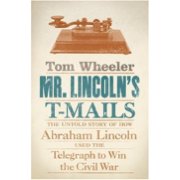Q. What assurances can you give the American people that the intelligence this time [on Iran supplying IEDs to Iraqi insurgents] will be accurate?
THE PRESIDENT: Ed, we know they’re there, we know they’re provided by the Quds force. We know the Quds force is a part of the Iranian government. I don’t think we know who picked up the phone and said to the Quds force, go do this, but we know it’s a vital part of the Iranian government.
What does President Bush know, and when does he know it? It matters because, despite his insistence that he’s not spoiling for a war with Iran, the things he knows tend to take on a life of their own and consequences for everyone else. So: A look back at what the administration presented as fact during its campaign to launch the war in Iraq. The speaker unless otherwise noted is Bush; the source is whitehouse.gov.
August 26, 2002 (Vice President Cheney): Simply stated, there is no doubt that Saddam Hussein now has weapons of mass destruction. There is no doubt he is amassing them to use against our friends, against our allies, and against us.
September 26, 2002: We know that the Iraqi regime is led by a dangerous and brutal man. We know he’s actively seeking the destructive technologies to match is hatred. We know he must be stopped. The dangers we face will only worsen from month to month and from year to year. To ignore these threats is to encourage them. And when they have fully materialized it may be too late to protect ourselves and our friends and our allies. By then the Iraqi dictator would have the means to terrorize and dominate the region. Each passing day could be the one on which the Iraqi regime gives anthrax or VX — nerve gas — or some day a nuclear weapon to a terrorist ally.”
November 7, 2002: Well, I think most people around the world realize that Saddam Hussein is a threat. And they — no one likes war, but they also don’t like the idea of Saddam Hussein having a nuclear weapon. Imagine what would happen. And by the way, we don’t know how close he is to a nuclear weapon right now. We know he wants one. But we don’t know. We know he was close to one at one point in time; we have no idea today.
January 28, 2003: From three Iraqi defectors we know that Iraq, in the late 1990s, had several mobile biological weapons labs. These are designed to produce germ warfare agents, and can be moved from place to a place to evade inspectors. Saddam Hussein has not disclosed these facilities. He’s given no evidence that he has destroyed them.
The International Atomic Energy Agency confirmed in the 1990s that Saddam Hussein had an advanced nuclear weapons development program, had a design for a nuclear weapon and was working on five different methods of enriching uranium for a bomb. The British government has learned that Saddam Hussein recently sought significant quantities of uranium from Africa. Our intelligence sources tell us that he has attempted to purchase high-strength aluminum tubes suitable for nuclear weapons production. Saddam Hussein has not credibly explained these activities. He clearly has much to hide.
The dictator of Iraq is not disarming. To the contrary; he is deceiving. From intelligence sources we know, for instance, that thousands of Iraqi security personnel are at work hiding documents and materials from the U.N. inspectors, sanitizing inspection sites and monitoring the inspectors themselves.
March 6, 2003: We care about the suffering of the Iraqi people. I mentioned in my opening comments that there’s a lot of food ready to go in. There’s something like 55,000 oil-for-food distribution points in Iraq. We know where they are. We fully intend to make sure that they’re — got ample food. We know where their hospitals are; we want to make sure they’ve got ample medical supplies. The life of the Iraqi citizen is going to dramatically improve.
March 15, 2003: We know from prior weapons inspections that Saddam has failed to account for vast quantities of biological and chemical agents, including mustard agent, botulinum toxin and sarin, capable of killing millions of people. We know the Iraqi regime finances and sponsors terror.
April 12, 2003: As people throughout Iraq celebrate the arrival of freedom, America celebrates with them. We know that freedom is the gift of God to all mankind, and we rejoice when others can share it.
April 22, 2003 (Ari Fleischer, White House press secretary): Q But the primary motivation behind going into Iraq, at least as expressed by the administration at the time, was the danger presented by Saddam holding these WMDs. Even if they did not exist, does the administration think that going into Iraq was the right thing to do?
MR. FLEISCHER: Well, I can’t share the premise. We know they exist and we’re confident they will be found.



